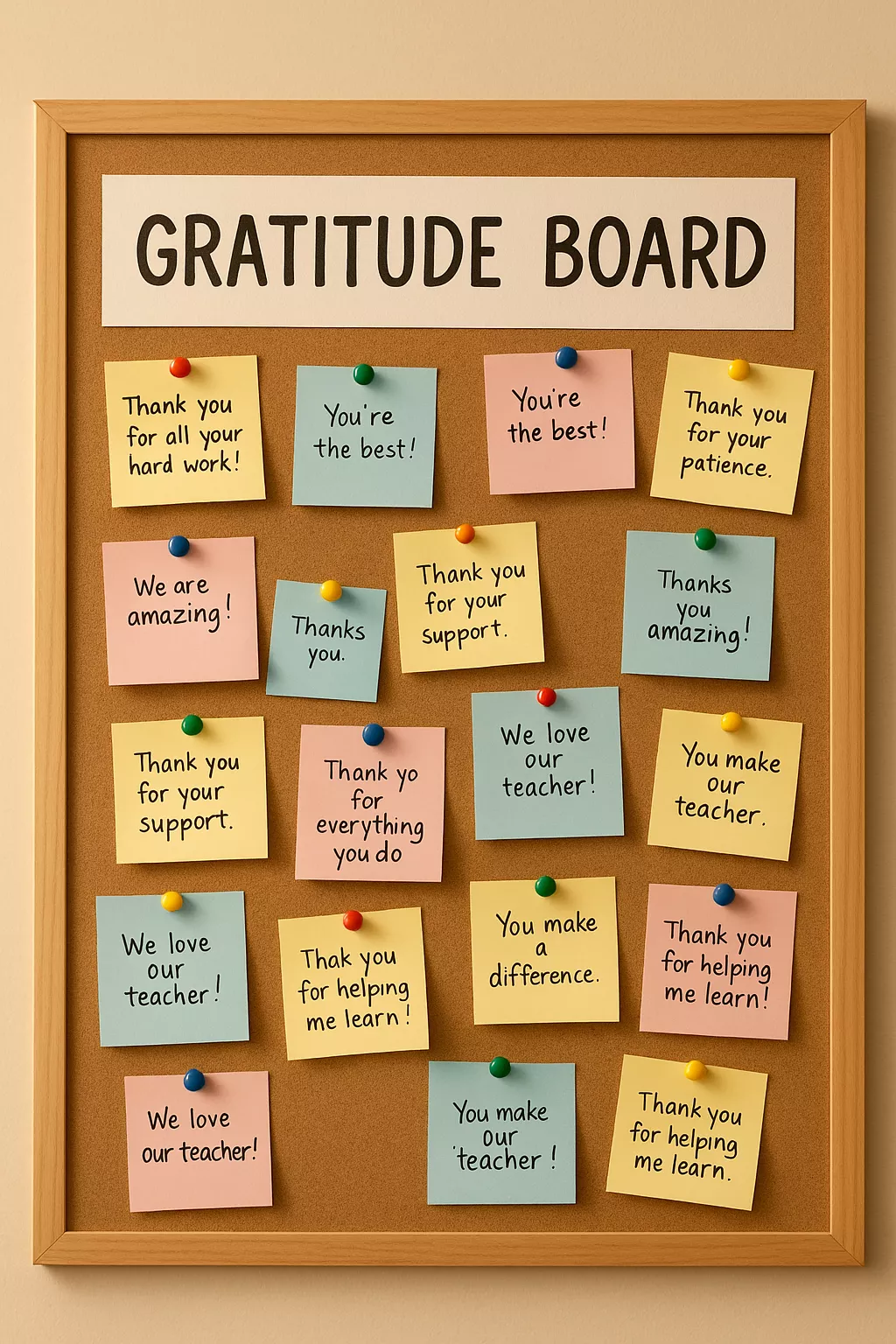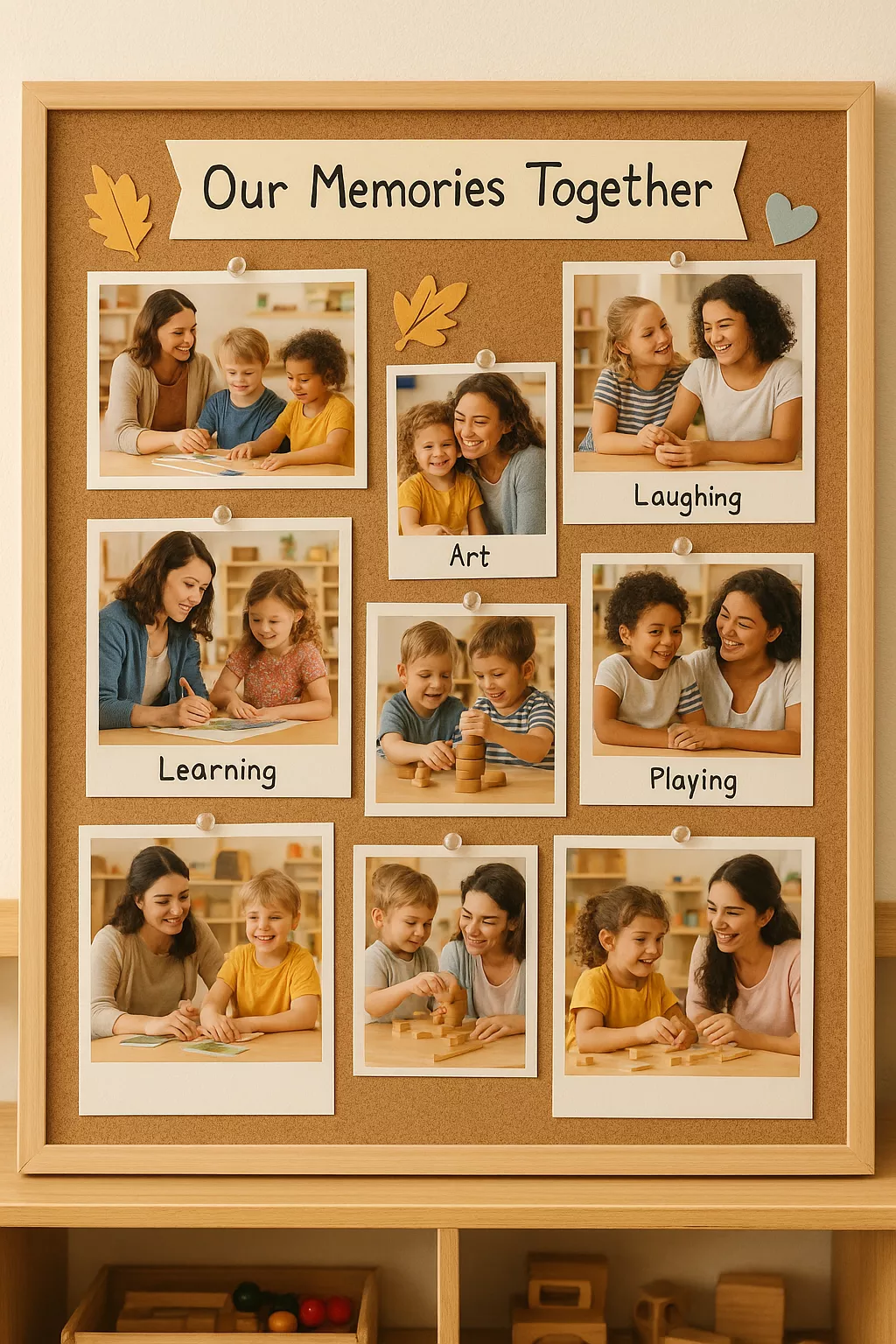Running a preschool is a labor of love. For your teachers and assistants, it is often a labor of heart.
Everyone wants to feel seen and appreciated. It is one of our most basic human needs. For teachers, whose days are spent nurturing others, appreciation is not a luxury; it is a kind of nourishment. They spend their days helping children grow, calming emotions, and building a sense of belonging. The work is deeply meaningful, but it can also be demanding and exhausting.
If we want to retain great educators, we must care for their spirits as much as their skills. Teacher appreciation should not be a one-time gesture, it needs to be a living part of your school’s culture. When staff feel respected and valued, they stay longer, contribute more, and bring their best energy to the classroom.
Why Teacher Appreciation Matters for Retention
Across early childhood programs, teacher retention has become one of our greatest challenges. Many educators love their work but leave because they feel unseen, unsupported, or overwhelmed.
In my years visiting schools, I have noticed something encouraging. The centers that keep their teachers year after year are not always the ones with the highest salaries, they are the ones where people feel they belong.
When teachers feel appreciated, several things happen:
- They stay longer. A sense of recognition builds loyalty and reduces burnout.
- They engage more deeply. Valued teachers take greater pride in their classrooms and relationships with families.
- They strengthen the culture. Gratitude and respect spread naturally, creating a place others want to join.
Appreciation is one of the most effective and affordable retention strategies. It tells teachers, you matter here, not just for what you do, but for who you are.
10 Teacher Appreciation Ideas to Form a Culture of Gratitude
1. Make Gratitude Visible Every Day
Appreciation should not be reserved for one week a year. It should become part of your school’s daily rhythm.
- Create a gratitude board where teachers, parents, and children can leave notes of thanks.
- Begin staff meetings with shout-outs such as “Who made your day easier this week?”
- Send short Friday messages from the director or head of school, recognizing small acts that made a difference.
At a Montessori school I worked with, the director kept a “Joy Wall” in the staff room. Every week, teachers added short notes celebrating small wins or acts of kindness. It took just a few minutes, and it became one of the most loved parts of their culture.
When gratitude is visible, morale rises and teachers feel proud to be part of the team. Over time, this sense of belonging is what keeps them.
2. Gift Them Time for Themselves
What teachers want most is not another mug or candle. They want time.
- Surprise a teacher with an extra hour of planning, covered by an administrator or floater.
- Offer assistants a longer lunch break once a month.
- Close early one afternoon for an all-teacher appreciation social or a professional development session followed by a shared treat or light refreshments.
Small gestures like these show respect for teachers’ personal lives and work balance. A little time back can renew energy and loyalty more than any material gift.
3. Personalize Your Appreciation
Generic praise fades quickly. What stays with people are the specific, heartfelt moments.
Instead of saying, “You’re all amazing,” try something like,
“Maria, the way you helped that new toddler settle in so gently reminded me why families love your classroom.”
Keep a small notebook or shared document with staff interests, birthdays, and milestones. Use it to personalize small gestures throughout the year - a favorite snack after a busy week, a handwritten note, or a mention during a meeting.
When appreciation feels personal, teachers know they are truly seen. That feeling builds lasting connection and loyalty.
4. Celebrate Milestones, Big and Small
Every teacher’s journey is filled with milestones worth noticing, both in the classroom and beyond it.
- Celebrate work anniversaries with a card or photo collage of memories from their classroom.
- Recognize certifications, new degrees, or training completions.
- Mark personal milestones like engagements, births, or new homes with small tokens of care.
At a school I know of, teachers’ work anniversaries are celebrated with a slideshow of photos and kind words from colleagues. It has become a yearly highlight that makes everyone feel part of something larger.
These moments remind teachers that the school sees their whole selves, not just their job titles. A community that celebrates together is one that people want to stay part of.
5. Create Comfort in the Staff Space
The place where teachers rest and reconnect should feel as cared for as the classrooms they create. The staff lounge need not be fancy, but it must feel like a refuge.
- Add comfortable seating, healthy (yet tasty) snacks, and good coffee or tea.
- Display cheerful photos of the team rather than only reminders or policies.
- Include a small “Take a Minute” corner with mindfulness cards or affirmations.
When teachers have a peaceful place to recharge, they return to the classroom refreshed. It signals that their well-being matters and that they are valued beyond their roles.
6. Encourage Peer Recognition
Appreciation from leadership is powerful. But appreciation from peers can be even more meaningful.
- Start a kindness jar where teachers can drop compliments to be read aloud each week.
- Try a “Pay It Forward” challenge, encouraging teachers to thank someone new regularly.
- Create monthly spirit awards voted by peers with lighthearted categories such as “Calmest in a Storm” or “Most Likely to Make You Smile.”
A preschool I know uses a “Thank You Tree.” Teachers hang paper leaves with handwritten notes of gratitude for each other. Over time, the tree has grown into a symbol of the school’s unity.
When teachers celebrate each other, the workplace becomes more supportive and joyful. Peer recognition strengthens relationships, which directly supports retention.
7. Offer Professional Growth
Professional growth is one of the most meaningful ways to show appreciation. It tells teachers their work today is valued, and their future even more so.
- Sponsor attendance at a local conference or workshop.
- Provide access to online courses or mentoring programs. There are great online courses that are free of cost as well!
- Invite guest speakers to share inspiration and new ideas.
- Celebrate achievements in newsletters or social media, with permission.
When teachers see leadership investing in their development, they invest their commitment in return.
8. Celebrate with Families’ Help
Parents often want to express gratitude but may not know how. A little guidance helps channel their energy in ways that feel genuine.
- Host a “Thank You Lunch” where families bring homemade dishes.
- Create a short video montage of children sharing what they love about their teachers.
- Invite parents to write messages on a “We Appreciate You” wall.
One center organized a surprise video where children said, “Thank you for teaching me…” Teachers watched it during a staff meeting and many had tears in their eyes. Those heartfelt moments remind educators why they chose this work.
When appreciation comes from both families and leadership, teachers feel deeply affirmed. It strengthens their bond with the school community.
9. Create Traditions of Celebration

Shared traditions give teachers something joyful to anticipate and remind them they are part of a lasting community.
Establish rituals that teachers look forward to each year:
- A back-to-school breakfast prepared by administrators.
- A winter “Warm-Up Day” with cocoa, socks, and music.
- A spring retreat focused on renewal rather than logistics.
- A simple end-of-year celebration sharing stories and memories.
These rituals do more than mark the calendar. They anchor the feeling of belonging that keeps teachers connected year after year.
10. Listen and Act
The most powerful appreciation is to listen and respond.
Ask teachers what would make their work life better. Use short surveys or listening sessions to gather honest feedback on workload, schedules, and support. Then act on what you hear.
Even small changes show that their voices matter. Retention begins when people feel heard and continues when they see real change follow their input.
A Few Final Thoughts
Appreciation is not about gifts or events. It is about culture.
When teachers feel respected, trusted, and celebrated, they bring that same energy into their classrooms. The children sense it, the families feel it, and the entire school community grows stronger.
A school that invests in its teachers’ well-being invests directly in the quality of its classrooms. When you build a culture of gratitude, your teachers will not only stay, they will thrive.












.webp)